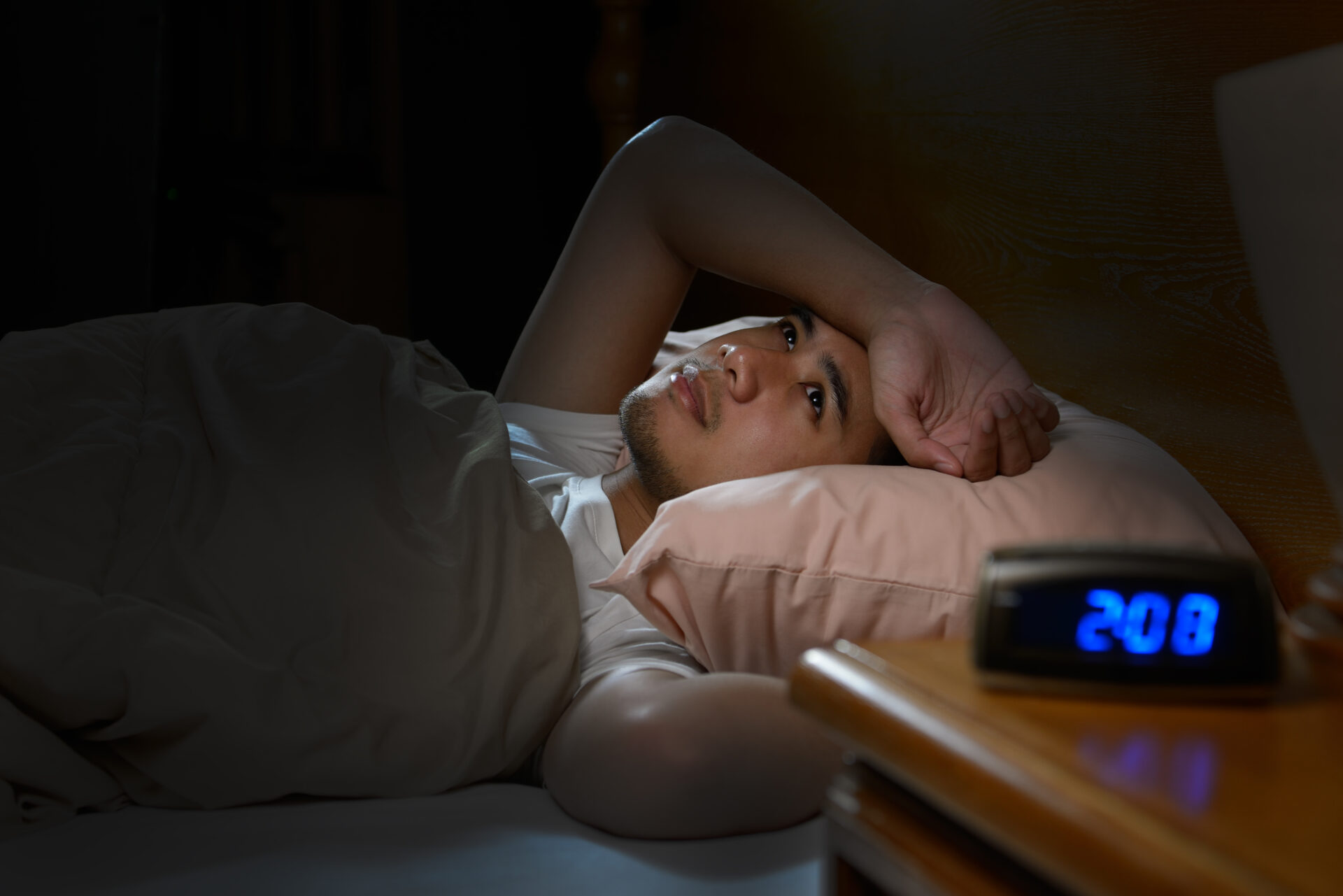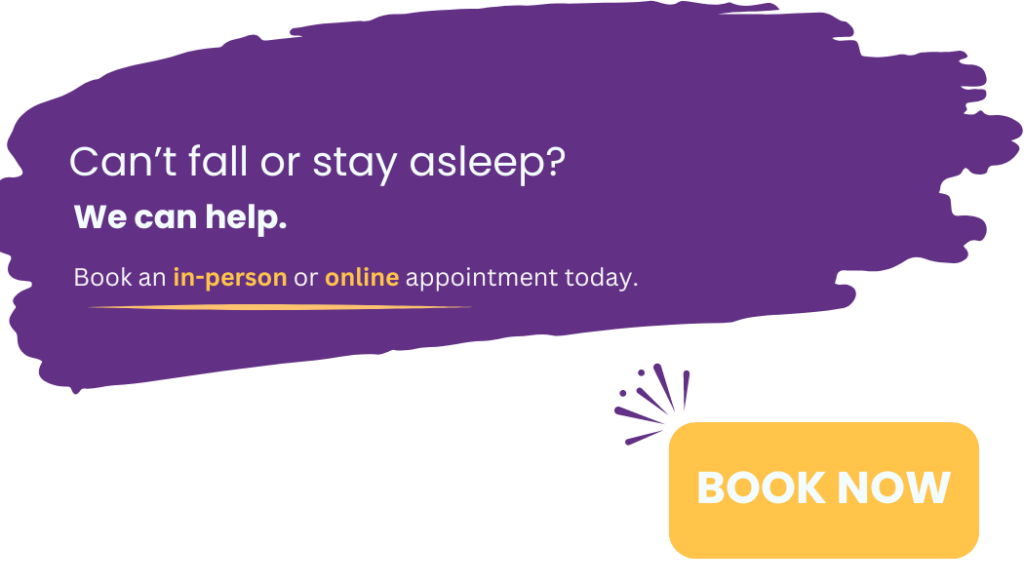Understanding and Overcoming Insomnia

Insomnia is a common sleep disorder characterized by difficulty falling asleep, staying asleep, or waking up too early and not being able to go back to sleep. It can lead to daytime fatigue, mood disturbances, and difficulty concentrating, significantly affecting one’s quality of life.
What is insomnia and how is it diagnosed?
Insomnia can be classified into two main types: acute and chronic. Acute insomnia is short-term and often triggered by stress or a traumatic event. It typically lasts for days or weeks.
On the other hand, chronic insomnia is long-term and occurs at least three nights per week for three months or longer.
The diagnosis of insomnia involves a comprehensive evaluation that includes:
- Medical history: Doctors review the patient’s medical history to identify any underlying health conditions that might contribute to sleep problems, such as chronic pain, heart disease, or mental health disorders.
- Sleep history: Patients might be asked to keep a sleep diary for a couple of weeks, detailing their sleep patterns, bedtime routines, and any difficulties encountered.
- Physical examination: A physical exam can help identify any signs of medical issues that might be affecting sleep.
- Sleep studies: In some cases, a sleep study (polysomnography) might be recommended. This involves staying overnight in a sleep center where various body functions, such as brain waves, heart rate, breathing, and movement, are monitored.
- Questionnaires: Several questionnaires, such as the Insomnia Severity Index (ISI) and the Epworth Sleepiness Scale, are used to assess the severity and impact of insomnia.
Causes
Insomnia can be caused by various factors, which can be broadly categorized into lifestyle, psychological, and medical causes.
Lifestyle factors
- Irregular sleep schedule: Frequently changing sleep times can disrupt the body’s internal clock.
- Poor sleep environment: Excessive noise, uncomfortable bedding, or inappropriate room temperature can affect sleep quality.
- Diet and stimulants: Consuming caffeine, nicotine, or heavy meals close to bedtime can interfere with sleep. Alcohol might help some people fall asleep but can disrupt sleep later in the night.
Psychological factors
- Stress: Worries about work, health, or family can keep the mind active at night.
- Anxiety and depression: Mental health conditions can both cause and be exacerbated by insomnia. Anxiety often leads to racing thoughts, while depression can lead to early morning awakenings.
Medical conditions
- Chronic pain: Conditions such as arthritis or back pain can make it difficult to get comfortable.
- Respiratory issues: Asthma and sleep apnea can disrupt breathing during sleep.
- Hormonal changes: Conditions like menopause or thyroid imbalances can affect sleep patterns.
- Neurological disorders: Diseases such as Parkinson’s or Alzheimer’s can interfere with sleep regulation.
Is insomnia hereditary?
There is evidence to suggest that insomnia can have a genetic component. Studies have shown that insomnia can run in families, indicating a hereditary predisposition.
However, genetics is only one piece of the puzzle. Environmental factors, lifestyle choices, and mental health status also play significant roles in the development and persistence of insomnia.
Improving sleep hygiene
Improving sleep hygiene involves adopting habits and behaviors that promote consistent, uninterrupted sleep. Here are several strategies to enhance sleep hygiene:
- Establish a routine: Go to bed and wake up at the same time every day, even on weekends. This helps regulate the body’s internal clock.
- Create a sleep-inducing environment: Make your bedroom comfortable and conducive to sleep. This means a dark, quiet, and cool room. Consider using earplugs, an eye mask, or a white noise machine if needed.
- Limit exposure to screens: The blue light emitted by phones, tablets, and computers can interfere with melatonin production. Try to avoid screens at least an hour before bedtime.
- Be mindful of food and drink: Avoid large meals, caffeine, and alcohol close to bedtime. Opt for a light snack if you’re hungry before bed.
- Get regular exercise: Physical activity can help you fall asleep faster and enjoy deeper sleep. However, try to avoid vigorous exercise close to bedtime.
- Manage stress: Engage in relaxing activities before bed, such as reading, taking a warm bath, or practicing mindfulness or meditation.
Treating insomnia
Treating insomnia often requires a multifaceted approach, incorporating both medication and non-medication strategies.
Non-medication solutions
Cognitive behavioral therapy for insomnia (CBT-I)
CBT-I is considered the first-line treatment for chronic insomnia. It involves working with a therapist to change negative thoughts and behaviors around sleep. CBT-I includes techniques like:
- Stimulus control therapy: This method aims to associate the bed with sleep and limit the time spent awake in bed.
- Sleep restriction: This technique involves limiting the amount of time spent in bed to the actual amount of time spent sleeping, gradually increasing it as sleep efficiency improves.
- Relaxation techniques: Techniques such as progressive muscle relaxation, deep breathing, and guided imagery can help reduce anxiety and promote relaxation.
Mindfulness and meditation
Practices like mindfulness meditation can help reduce stress and improve sleep quality by calming the mind and body.
Behavioral strategies
Establishing a regular sleep schedule, creating a relaxing bedtime routine, and improving sleep hygiene can be effective in managing insomnia
Medication solutions
When non-medication strategies are insufficient, a doctor might prescribe medications to manage insomnia. These should be used under the guidance of a healthcare provider, as they can have side effects and the potential for dependency.
Prescription Medications
- Benzodiazepines: These drugs, such as temazepam (Restoril), can be effective for short-term use but carry a risk of dependence and withdrawal symptoms.
- Non-benzodiazepine hypnotics: Medications like zolpidem (Ambien), eszopiclone (Lunesta), and zaleplon (Sonata) are commonly prescribed for insomnia. They tend to have fewer side effects than benzodiazepines but can still cause dependency.
- Melatonin receptor agonists: Ramelteon (Rozerem) mimics the sleep hormone melatonin and is used to help regulate the sleep-wake cycle.
- Antidepressants: Some antidepressants, such as trazodone and doxepin, have sedative properties and can be prescribed for insomnia, especially when associated with depression or anxiety.
Over-the-counter medications
-
- Antihistamines: Medications like diphenhydramine (Benadryl) and doxylamine (Unisom) can induce drowsiness. However, they can cause next-day drowsiness and are not recommended for long-term use.
- Melatonin supplements: Melatonin is a hormone that helps regulate sleep-wake cycles. Supplements can be helpful for people with circadian rhythm disorders or jet lag but should be used with caution as they are not regulated by the FDA.
Conclusion
Insomnia is a complex and multifaceted condition that requires a thorough understanding of its causes and an individualized approach to treatment.
By improving sleep hygiene, addressing underlying medical or psychological issues, and using both non-medication and medication strategies appropriately, individuals can significantly improve their sleep quality and overall well-being.
If insomnia persists, it’s essential to seek professional help to address the issue comprehensively. Talk to us if you’re struggling with insomnia.

